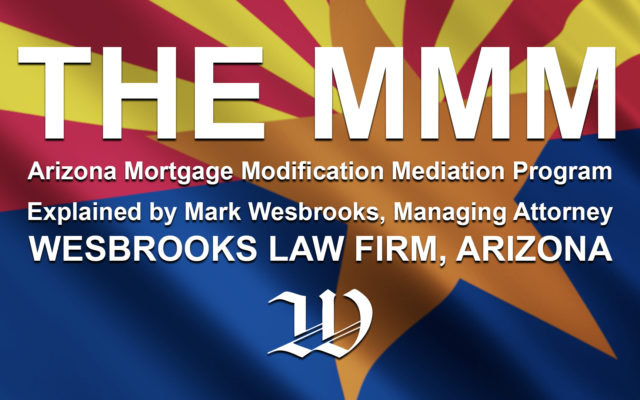

Using your retirement or investments to pay down your debts may sound logical, but if you are planning on filing bankruptcy in the future, it may not a wise decision.
 In this article we are going to discuss the pros and cons of using your retirement to pay off your debts including credit cards, loans, and alike. We will also discuss the types of investments that are protected and what investments may be subject to collection.
In this article we are going to discuss the pros and cons of using your retirement to pay off your debts including credit cards, loans, and alike. We will also discuss the types of investments that are protected and what investments may be subject to collection.
If you’re sitting in front of your computer or device reading this than you may be wondering what type of advice an attorney would give you when you have an investment portfolio, but a large debt to income ratio.
A word of caution: Each person’s situation is different, we do want to caution you that if you are considering bankruptcy, debt negotiation or using your retirement funds to pay off your debts contact our law firm to get a second opinion. We all do this with our doctors if we need a second opinion, you should consider doing the same to secure a stronger financial future. Our law firm offers free advice for anyone who may need a little guidance on what to do to have a stronger hold or want to hold on to their current investments.
We are not however a financial or an investment planning law firm. We will never try to sell you on investments or twist your arm to get you to do something that you do not want to do. The Wesbrooks Law Firm is instead a full service law firm that has attorneys at law ready for just about any type of case that you may have. Our Managing Attorney Mark Wesbrooks is well versed and highly qualified in Creditors’ Rights Law and has handled thousands of Debt Negotiation and Bankruptcy cases in both Arizona and Texas.
Basically what we are saying is he knows a thing or two about the sneaky tactics creditors may use to make you feel like you have no choice. You do have a choice and we’re here to give you those options either in person or right here on our very own blog for free!
After you’ve read this or even before, if you have any questions about your own specific situation feel free to contact us via our website or by calling us Monday through Friday from 8:00 AM to 5:30 PM to schedule your FREE consultation. We would be more than happy to assist you.
Let’s answer this question first, should I use my retirement or investments to pay off my debts?
This friends is actually a double edged sword question. To answer this very quickly, we don’t know because we don’t know your situation. Although not the answer you’re looking for, it is tough to cast a wide blanket and say one thing or another to a large group of people without knowing their specific situation or troubles. What we can do though is educate you, give you some scenarios and ask you some questions to think about when making this decision yourself.
Here goes…
- Are you thinking about filing bankruptcy?
- Have you considered debt negotiation?
- Are you current on your debts?
- If you are behind on your debts or missed a payment or two, do you have any creditors calling, sending you snail mail or threatening you with judgments?
- What is your age?
- Are you currently employed?
- Are you collecting any other type of monthly income?
Let’s break these questions down so that we can explain the importance of them a little:
- Are you thinking about bankruptcy?
- If you are… you may want to hold on to your money. Some investments are protected under the bankruptcy law and it would be just a shame for you to exhaust your retirement if you do not need to. When working with your bankruptcy attorney just be sure to list or inform them of your investments so that you both can go over your options and what is best for your financial future.
- Have you considered debt negotiation?
- Do you just have a one or two creditors hounding you? It may actually be better to negotiate favorable terms on the amount you will pay to your creditor rather than making the typical normal monthly payments. Sometimes with the help of an attorney that huge debt that you once had can turn into smaller payments or a smaller percentage of what you actually owed.
- Are you current on your debts?
- If you are current on your debts, can afford to continually make those payments, and you’re not considering bankruptcy it may be best to just sit tight.
- Do you have creditors calling, sending you snail mail or threatening you with judgements because you are behind in payments?
- Creditors typically will not stop. They are quite relentless, so if you owe a creditor money and have the means to pay it back without taking away from your food, family or shelter, you should do so. If you do not have the means or do not have the means any longer than it may be best to just give us a call at (602) 262-4357 and schedule a free complimentary consultation. Never let this situation get worse because your paycheck and other funds you rely on daily, weekly or monthly may begin to be garnished.
- What is your age?
- Sorry, but age does actually matter when debt is involved. Debt is debt, but debt is much scarier when you are retired or about to be retired. Why? You are about to or already living on a fixed income, could you imagine if some of that income was taken away from you? If you are a young buck, and you can afford it you could just take on that debt, decide on a payment schedule and pay off the debt in good time.
- Are you collecting any other type of monthly income?
- This actually boils down to age again. If your younger, than you could get a second job (probably not want you wanted to hear right?) to pay off or down these debts. If you are older however and you do fall behind, your creditors may be able to take that additional income from you with a garnishment.
What these seven questions above do is get you thinking about what you really want and how you plan on getting rid of these debts. We first started with the question should I use my retirement or investments to pay off my debts, but now we’ve thrown out a few additional options at you such as bankruptcy, debt negotiation, or even using additional income to pay down your creditors.
Think about the interest you will pay in the long run.


Let’s break this down a bit…
- $15,000.00 Loan, Credit Card, etc.
- Pay for a period of 7 years
- At an interest rate of 18%
- Means you pay $211.00 per month
- It also means you may be paying $2,528.86 in interest for the life of the loan and the original loan of $15,000.00 is actually $17,702.00 because of said interest
- We should also note that is IF you do not use that interest from the loan, or use your credit cards, etc.
Wowzers, $2,528.86 is quite a bit to pay just on interest!
The best idea for you to figure out if you’ll be paying that much interest is to take the payment rate you are making right now, and divide it by the amount of months or years it would take to pay off that loan by the total amount owed. Then, add your APR (Annual Percentage Rate) to know how much interest you will be paying for that debt. Sometimes depending on the amount you are borrowing, you may only be paying 20% of the principal, but paying 80% of the interest.
It’s good to keep an extra eye on this information and for good reason. Normally, if it is in fine print somewhere, that is where you should look first. Depending on your loan or credit card provider will depend on where this information is and whether or not they provide it to you on your monthly statement.
Here is our math for the example of the $15,000.00 loan:
$15,000.00 / 7 Years = $2,142.86 Per Year X’s 18% Interest = $386.00 Interest Per Year X’s 7 Years = $2,702.00 Interest for the life of the loan
$15,000.00 + $2,702.00 Interest = $17,702.00 Total Loan Amount / 7 Years = $2,528.86 A Year or $211.00 A Month
Investments & Taxes: Firstly, if you didn’t know, you will normally be charged a penalty with any type of deduction out of a retirement investment. Taxes are not typically included when you put money into your retirement investment, so when you take money out (before a certain age) you will need to pay a percentage of the taxes when you take any money out. If you have a large portfolio than it may be something to consider to use your investment to pay off your debts, but there is always a lingering question…
Is bankruptcy an option for me? You see… if you are considering bankruptcy than you have one more part of the sword that we haven’t discussed just yet and that is the idea that you could potentially eliminate all of your debts. Why is this important? This answer is very simple, if you take money out of your secure investments (secure meaning no creditors can take this away from you) than you may have literally thrown money out the window and you may be making it much harder for yourself to live a comfortable life during retirement. Are your bills really worth that stress? If you’ve saved for that long, you probably aren’t the type of person that does throw money out the window. There are always alternatives to ensuring this does not happen. If you have time, and before you consider removing money from your retirement plan give us a call at (602) 262-4357 and schedule a FREE consultation with one of our qualified attorneys.
Are my investments secure from my creditors?
What retirement investments may be protected from creditors?
Do you have an ERISA 401K, deferred compensation plan or profit sharing plan? If you do, than more than likely you are protected. The ERISA or Employee Retirement Income Security Act is a retirement plan that must be maintained by either your employer, separate employee organization or both. These plans require a list of prerequisites, such as;
- Provide regular and automatic information to employees on what the plan does and how the plan gets its funding
- After a certain time “on the job” employees are eligible
- The employer must provide some type of funding whether its direct or indirect
- Provide accumulation of benefits
- Whomever is responsible for the plan is accountable for any type of mismanagement of the plan
- Allow employees the right to sue the plan or its managers for any mismanagement
- Prohibit voluntary transfer by employees of their interest in benefits of the plan, AKA “anti-alienation”
- Anti-alienation clause: This is a provision in which you cannot sell, transfer or give up your benefits to anyone else, nor can these benefits be taken away. Typically, this is the provision that prevents any creditor from implying judgments to your ERISA plan. It also prevents your employer or plan manager from releasing your benefits to a creditor.
What retirement investments may not be protected from creditors?
The first question we would ask you if you are concerned about your retirement investments is whether or not you named any of your retirement investments as security for any loans. Basically what this means is that you put up your IRA or 401K as collateral for the house loan that just defaulted. If you did, than creditors may be able to access those funds to recoup at least some of the money that you owe them.
Let’s compile a list of retirement investments that may not be protected, but first we should say that any non-ERISA investment may be at risk.
- IRA’s (Traditional Individual Retirement Accounts)
- Roth IRA’s
- Simple IRA’s
- SEP (Simplified Employee Pension Plans)
- Keogh Plans
- 403(b) Plans (Public school or university employees)
- Government Plans
- Church Plans
As you can see there is quite a bit that you would need to figure out to see whether or not a creditor can actually take from your retirement investments. Each state also has its own laws specific to these types of issues and they can vary from state to state.
The best advice that we can give you right here on this blog is to take a deep breath, sit down, look at the type of investments you have, look at your debts and think about how you can get those debts down to manageable payments. If you are still having a hard time getting by, don’t think you can do it on your own, or maybe you have no investments and you need help now, than pick up the phone, call (602) 262-4357 and make an appointment today. Get yourself free advice on your specific situation. Remember, it’s better to make a pre-emptive strike now before it’s too late.
We have plenty of other blogs relating to bankruptcy and asset protection, head on over to our blog to learn.
Think this is something your friends or family may enjoy reading? Feel free to share this page with them and remember a happy retirement or investment is a happier life!


